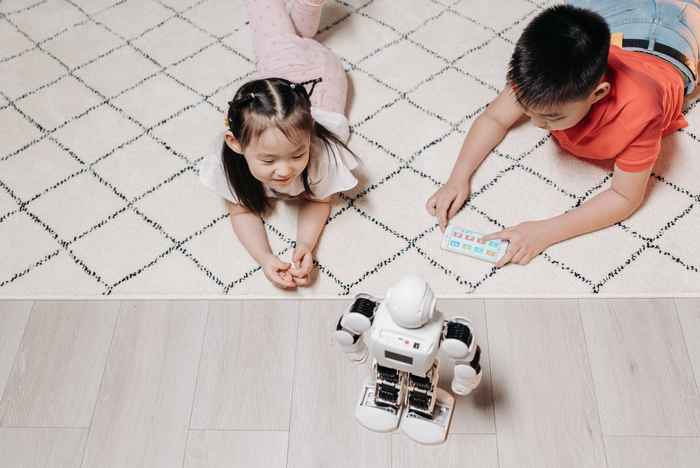PEPTalk #14: Robot Friendship: Possibilities and Limitations (rescheduled)
Online via Zoom
- Date
- 22 September 2022
- Time
- 16:00 -17:00

For the Zoom link, please send an email to pept@uva.nl.
Friendship is an important kind of relationship, but one that is quite difficult to define. In part because it is highly flexible and informal, adapting to the particular needs, values, and interests of friends. At the same time, it clearly seems to have limits. Friendships can turn out to be merely illusory, people can be friends but fail to be good friends, and sometimes, despite our best intentions, friendship simply fails to materialize. As social robotics develops, companionate robots are being designed to occupy 'friendly' roles in a variety of contexts and using diverse means and resources, from those that alleviate loneliness in seniors, to seemingly cheerful supporters of exercise and wellness programs, to therapeutic robots used to help neurodiverse children learn and practice social skills, to chatbots trained on deceased friends' text messages in order to imitate their conversational styles. The intersection of a difficult-to-define but valuable social relationship with a rapidly changing technological field presents many questions about both the possibilities and limitations of robots in friendship. Figuring out what can count as a friend, under what conditions, where confusion is likely to arise and what costs are associated with mistakes, and what social skills and practices are facilitated or disrupted by these technologies will require us to get clearer on the nature of friendship, and help us better navigate both opportunities and moral risks in social robotics.
In this session, Alexis Elder will give a brief overview of some different ways that robots can be implicated in friendship, followed by discussion with participants on what it means to be a friend and how this can help us to think about a range of issues in social robotics.
Speakers
Alexis Elder is an Associate Professor of Philosophy at the University of Minnesota Duluth. Her research involves topics in ethics, sociality and emerging technologies, from social robotics to social media. She draws on ancient philosophy - primarily Chinese and Greek - in order to think about current problems. She has been published in a variety of international journals, including Ethics & Information Technology, the Journal of Applied Philosophy, ACM SIGCAS Computers & Society, and her work appears in edited volumes on robot ethics and virtual reality. In 2018 she published her first book Friendship, Robots, and Social Media: False Friends and Second Selves.
Aybüke Özgün is an Assistant Professor of Responsible and Ethical AI at the University of Amsterdam and the Institute for Logic, Language, and Computation. She completed a joint PhD degree in Logic and Computer Science at the University of Amsterdam and the University of Lorraine.